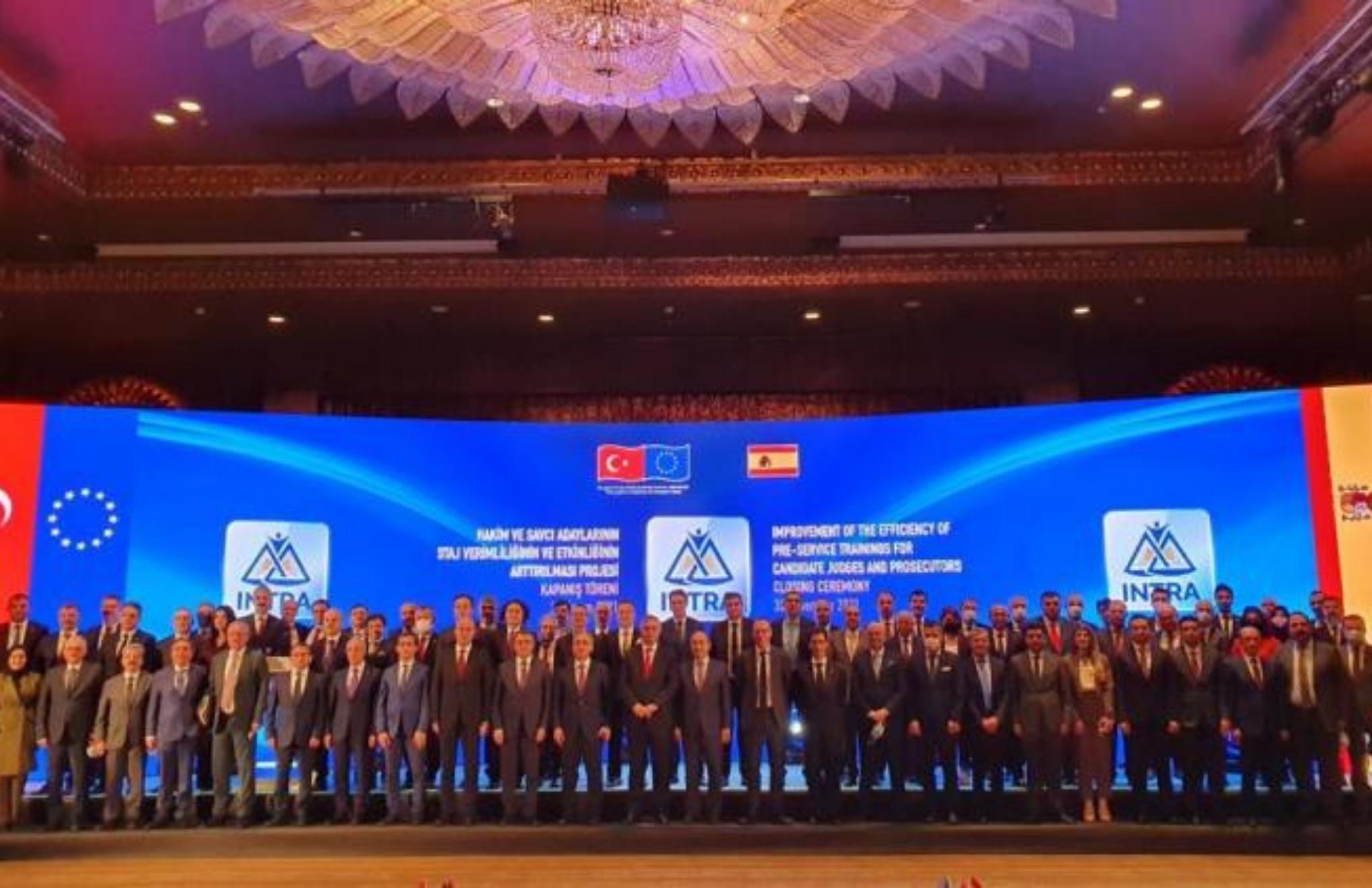* Photo: Delegation of the EU to Turkey
Click to read the article in Turkish
The Justice Ministry has completed its project offering an internship program to candidate judges and prosecutors in European standards.
The European Union-funded project supporting the establishment of an internship model for candidate judges and prosecutors in line with the European standards was completed in Ankara on 30 November.
The event was held with the participation of Deputy Minister of Justice Hasan Yılmaz, Deputy Head of Mission of the Embassy of Spain to Turkey Héctor Castaneda, Head of Section, Civil Society, Fundamental Rights, Judiciary and Home Affairs of the European Union Delegation to Turkey Alexander Fricke and Director-General for Financial Cooperation and Project Implementation at Directorate for EU Affairs Bülent Özcan.
The pre-service training of candidate judges and prosecutors in Turkey comprises theoretical training at the Justice Academy and internship training at courts. Internship period constitutes 70 percent and thus the greater part of the pre-service training period of the candidates.
The project is aimed at improving the professional skills of the candidates in the courts and enhanced effectiveness of newcomer judges and public prosecutors in order to ensure objective, impartial and competent performance after they take up their duties.
2-million Euro support from the EU
The Delegation of the European Union (EU) to Turkey has made the following statement about the project:
"With an EU contribution of 2 million Euro, the project took a first step in setting up a new internship system in line with European standards and best practice. The new internship model introduces a new function of 'Court Coordinators' and establishes a 'mentoring system'.
"According to this system, each internship court will have a 'Court Coordinator' responsible for closely monitoring the candidates, acting as a permanent contact/link between the mentors of the Court and the Ministry of Justice responsible for overseeing the internship.
"The Coordinator will be in permanent contact with parties including the candidates in order to solve any doubt or problem that may arise during the internship. 'Mentors' in each Court will be responsible for teaching the profession to candidate judges and prosecutors. The system was implemented in 10 pilot courts.
"The project also defined qualified internship courts where the candidates should spend their candidacy period with mentors following their development. At the end of the implementation, Internship manuals are available for internship court judges and prosecutors (mentors and coordinators) and inspectors.
"Guidelines determining the competences and skills to be achieved by the candidates are drafted. Several training modules for both candidates and mentors are ready for dissemination by the Ministry of Justice."
The EU Delegation to Turkey has declared that the project was implemented together with Spain in a twinning modality. (KÖ/SD)




